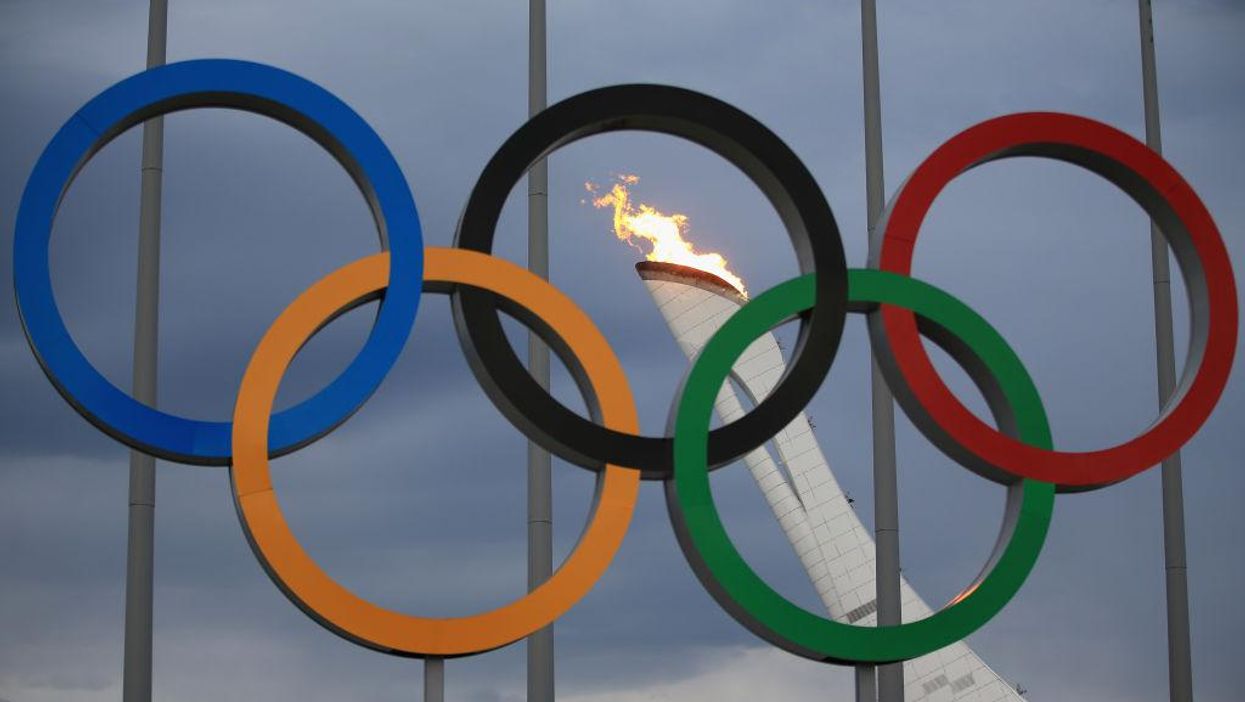
Richard Heathcote/Getty Images

The International Olympic Committee strictly forbids political protests
The U.S. Olympic and Paralympic Committee said Thursday it would allow its athletes to protest in "support of racial and social justice." Demonstrations are strictly prohibited by the International Olympic Committee.
On Dec. 10, which is Human Rights Day, the Team USA Council on Racial and Social Justice released a statement: "The Council's recommendation is built on the foundation that athletes should have the right to peacefully protest and demonstrate against racial and social injustices and to promote human dignity through global sport."
"In support of this recommendation, the USOPC will not sanction Team USA athletes for respectfully demonstrating in support of racial and social justice for all human beings," the statement reads. "This decision addresses the responsibility the USOPC has in the application of IOC and IPC rules prohibiting demonstrations at the Olympic and Paralympic Games."
Rule 50 of the Olympic Charter declares, "No kind of demonstration or political, religious or racial propaganda is permitted in any Olympic sites, venues or other areas."
The IPC Paralympic Handbook has a similar regulation, known as "Section 2.2."
The Team USA Council noted, "We want to make unmistakably clear that human rights are not political; yet, they have been politicized both in the U.S. and globally to perpetuate the wrongful and dehumanizing myth of sport as an inherently neutral domain."
The Team USA Council on Racial and Social Justice, which was recently created in June amid the nationwide Black Lives Matter protests, instructed the IOC and IPC to "update guidelines to allow for peaceful actions that specifically advocate for human rights and racial and social justice, and distinguishes those acts from to-be-defined 'divisive demonstrations' - including, but not limited to, currently prohibited acts of hate speech, racist propaganda, political statements and discrimination."
Dr. Yannick Kluch, an assistant professor at Rowan University and external consultant on the Team USA Council's Protests and Demonstrations Steering Committee, said, "The recommendations, released on International Human Rights Day, work towards centering marginalized voices, particularly those of racially minoritized populations such as Black athletes, in the global sport community by clearly capturing how peaceful protests and demonstrations are a fundamental human right and can serve as a moral compass in promoting human dignity through global sport."
Moushaumi Robinson, chair of the Team USA Council on Racial and Social Justice and 2004 Olympic gold medalist in track and field, released a statement: "The Team USA Council on Racial and Social Justice provided its recommendation to the USOPC, NGBs, IOC and IPC in an effort to show the power and duty athletes have to build a more inclusive world through sport. The Council believes the diversity of Team USA athletes is our strength, and that this recommendation can be a catalyst for change."
USOPC CEO Sarah Hirshland said, "The USOPC values the voices of Team USA athletes and believes that their right to advocate for racial and social justice, and be a positive force for change, absolutely aligns with the fundamental values of equality that define Team USA and the Olympic and Paralympic movements."
The IOC Athlete Commission is "soliciting feedback," and likely to provide an update in 2021.
The 2020 Olympic Games in Tokyo have been delayed because of the coronavirus pandemic and are rescheduled from July 23 to Aug. 8, 2021.